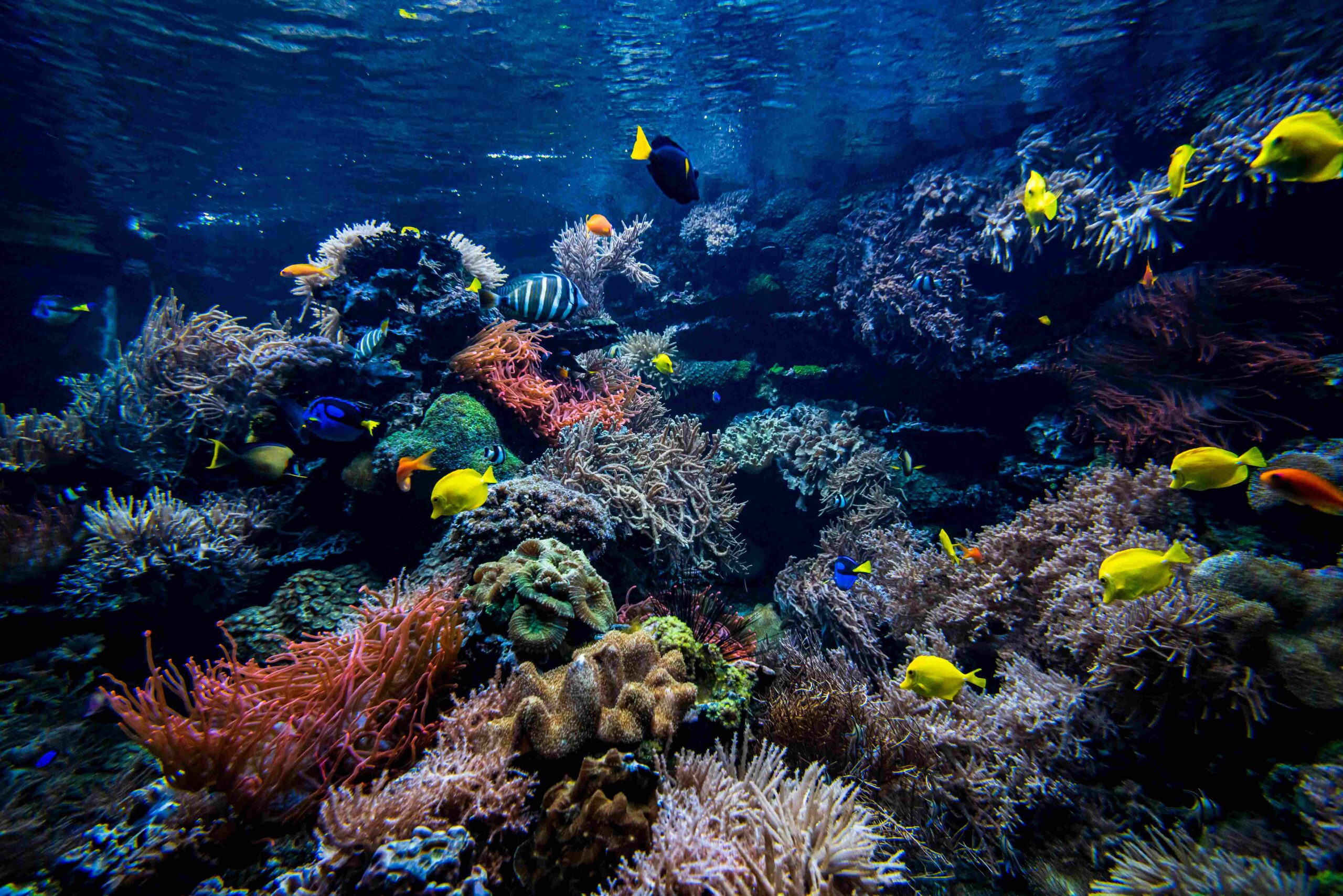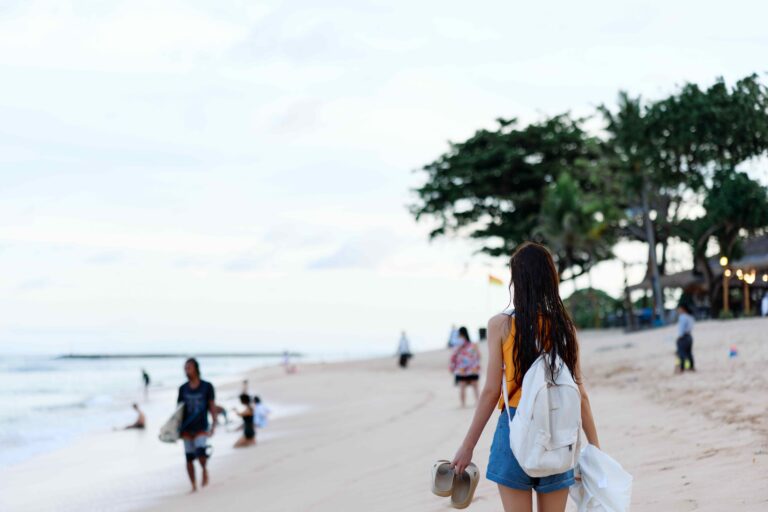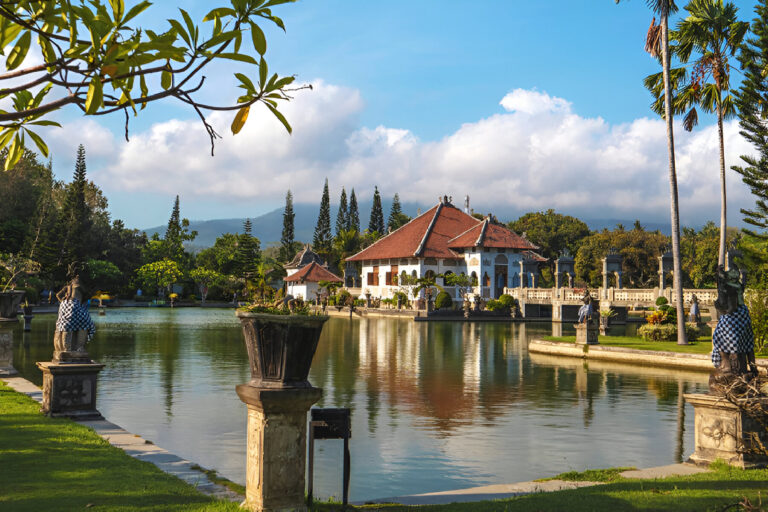Bali is a wonderful place to witness coral reefs and the marine protected areas around the island are considered to be one of the most important ecosystems on Earth.
You can swim among the coral reefs and discover marine life such as reef fish and reef sharks in Bali but you need to ensure that you treat them with care and respect, or there will be no reefs for future generations to enjoy.
This is what you need to know about the best coral reefs in Bali before you jump into the water with them.
The Coral Species Of A Balinese Coral Reef
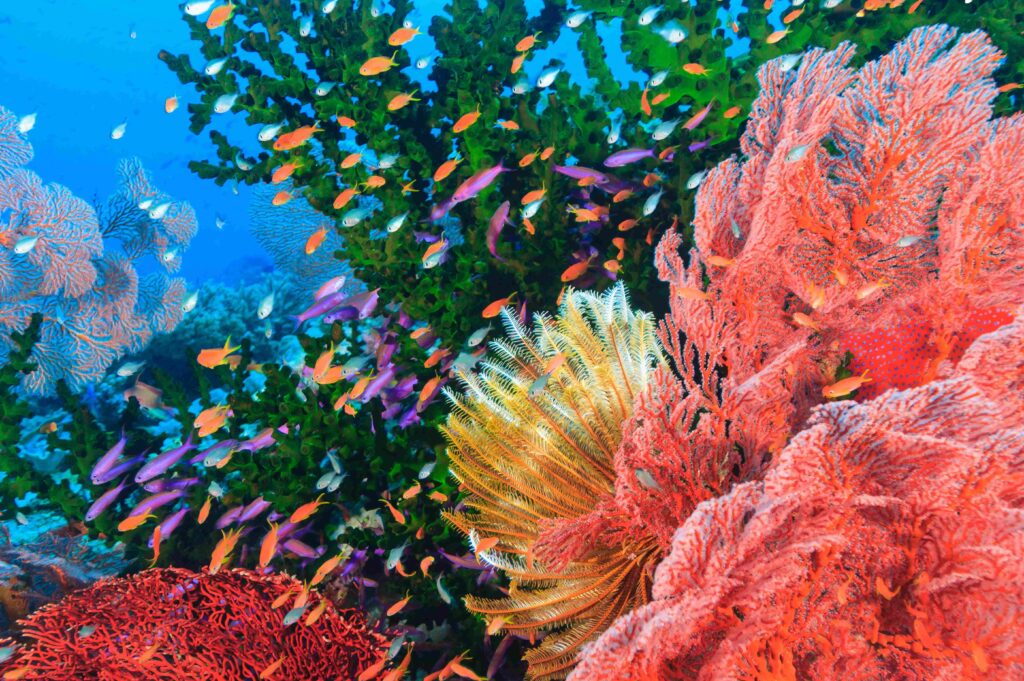
There are over 20 species of coral supporting marine life in Bali such as reef fish and reef sharks in Bali these include both soft corals and hard corals.
The most common species of coral here include:
Acropora – an abundant coral that is often home to damselfish
Echinophullia – a hard coral that attracts turtles to feed on the sponges and hydroids that live in the coral gardens
Poillopora – a small shrub-like coral that is often the first coral to be introduced in coral restoration projects on degraded coral reefs
Porites – a very small coral but one of the hardest corals that can withstand bleaching events and big storms
Xenia – a very beautiful coral that helps to stabilize damaged reefs
The Bali Coral Triangle Center
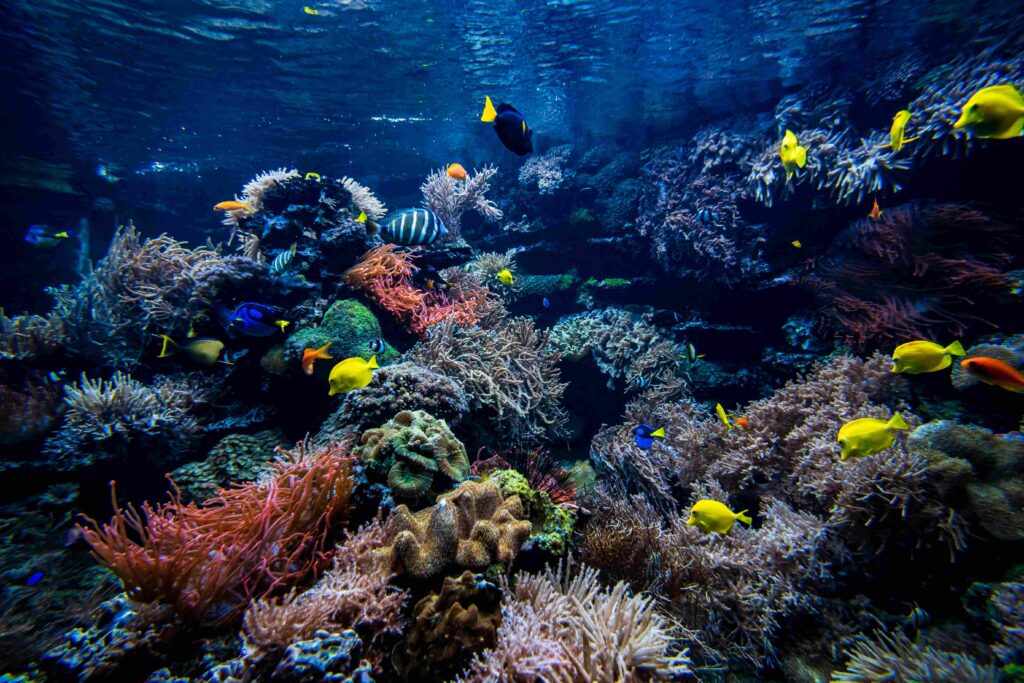
The coral triangle is an area in the oceans of Southeast Asia. It covers a collection of coral reefs from the Philippines, Indonesia (but mainly, Bali), Malaysia, Papua, the Solomon Islands and East Timor.
It’s a vital area for marine conservation projects and local communities often refer to the region as the “Amazon of the Ocean floor.” In fact, the rainforests probably have less diversity of life than the reefs according to scientists.
Healthy coral reefs are essential to the lives of an infinite amount of marine life and without them, our oceans would be in serious trouble.
Unfortunately, climate change, pollution, etc. are causing huge damage to the corals in our oceans and thus, a more proactive approach to coral reefs is required.
The Bali Coral Triangle Center (CTC) is a community project that invests in keeping healthy reefs healthy, and places like the Coral Gardens in Nusa Penida exist because of projects like this one.
Each restoration site in Bali will create a future for coral in Indonesia and for the world at large.
Sunscreen And Coral
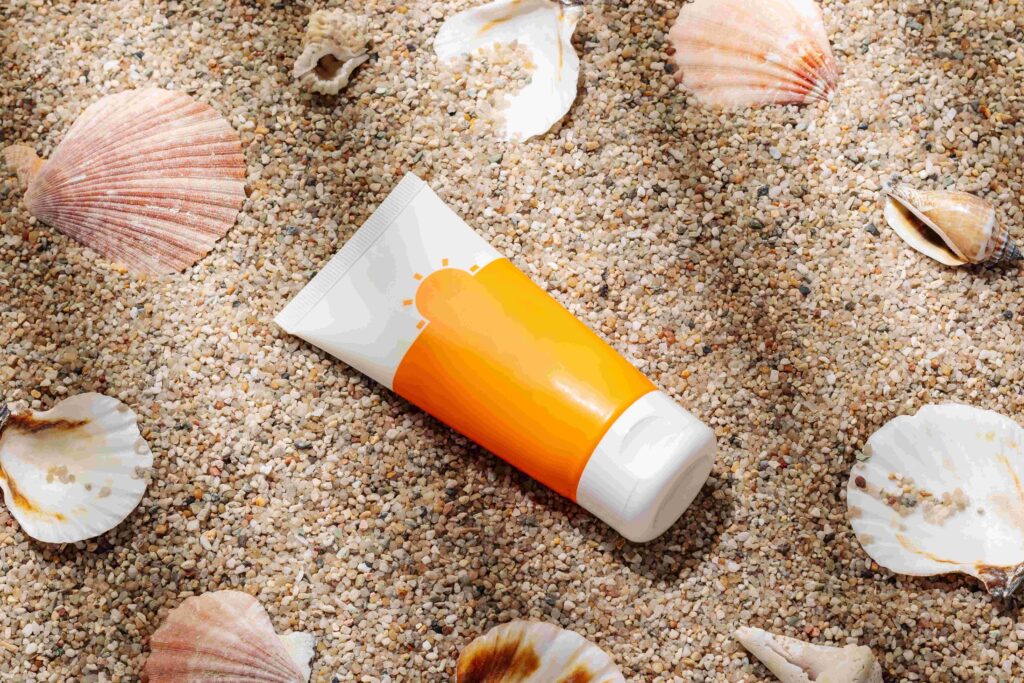
A recent study shows that chemicals in sunscreen and other cosmetic products may play a part in damaging coral reefs.
Thus, it’s important to think about the products you use before getting into the ocean and choose sunscreen, shampoo, etc. that won’t create harm to the coral reefs.
The 4 Best Coral Reefs In Bali
Tulamben Coral Gardens (USAT Liberty Shipwreck)
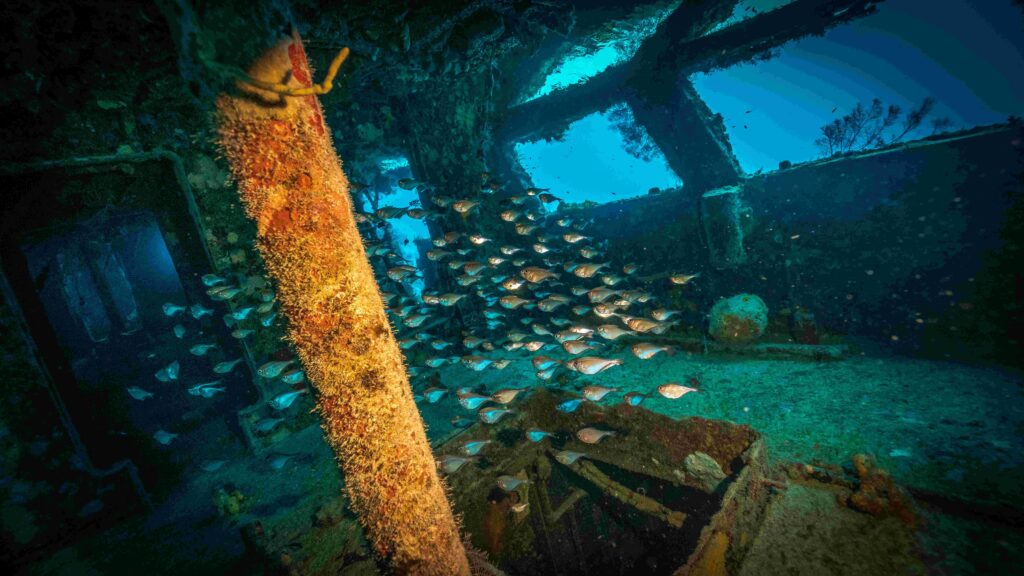
This is a very shallow reef and one of the best places for beginner divers to get their stripes and for underwater photographers to get close to the ocean floor and grab amazing images of the local fish.
It’s a great place to visit if you can’t dive too as on a day when the waters are relatively calm, you can see the coral without diving by snorkelling in the area!
It’s also very near the famous USAT Liberty Shipwreck which is the wreckage of a ship sunk by the Japanese during World War 2 and another top dive site on the island.
Watch out for the eels, they’re not dangerous, but they are absolutely huge and a major attraction in this part of the ocean.
Where Is It? PHFV+JM6, Sea, Kec. Kubu, Kubu, Bali 80852, Indonesia
Bias Tugel, Padang Bai
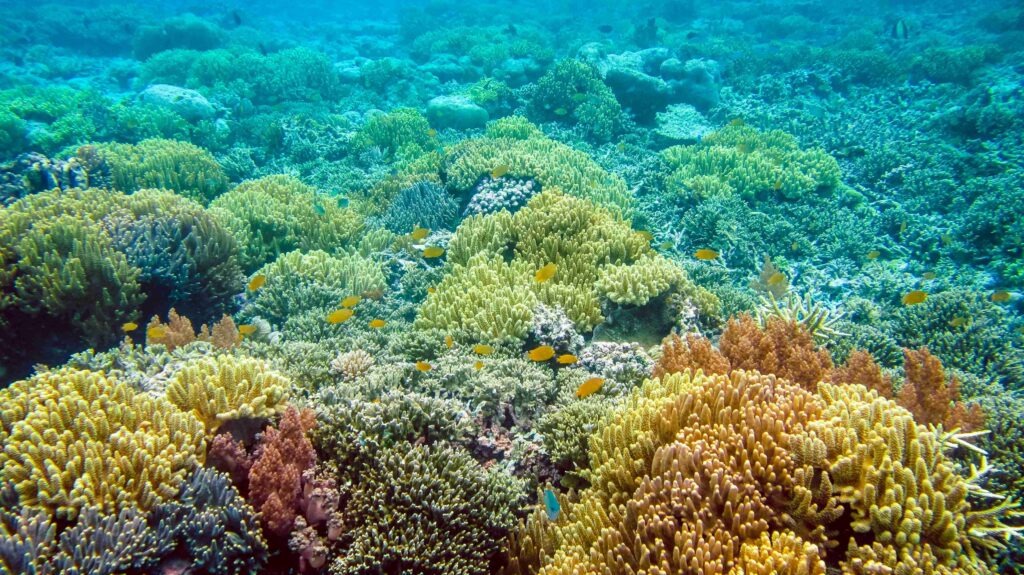
Bias Tugel is a beach and just offshore, you will find one of Bali’s most spectacular reefs.
Padang Bai is home to many amazing spots for a dive but there’s no doubt that this is one of the best places.
What makes this reef so special is that it has a huge range of different species of corals and thus, it attracts an amazing number of reef fish.
You’ll find crocodile fish, humphead wrasse, seahorses, reef sharks and so much more in the water here.
This is one of the less visited parts of Bali and if you head out to Padang Bai, you’re going to find that there are very few tourists competing for beach access and divers can enjoy a very peaceful swim around the coral reefs.
Where Is It? Padangbai, Manggis, Karangasem Regency, Bali 80871, Indonesia
Menjangan Island, West Bali National Park
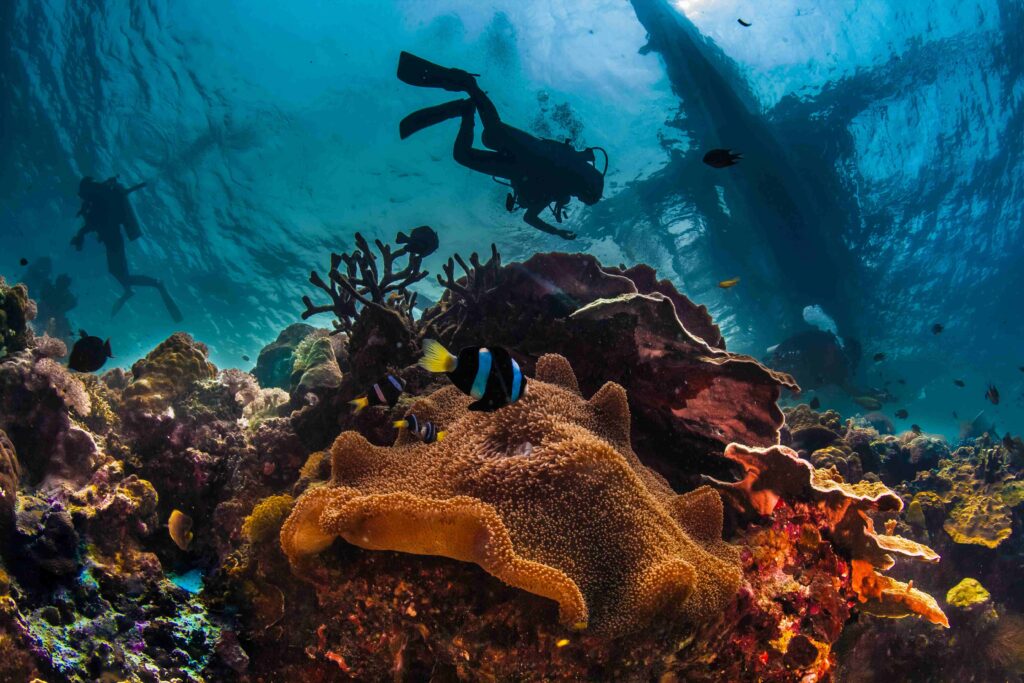
We strongly recommend that everyone visits the West Bali National Park which is one of the most attractive areas on the island and also Bali’s only national park area.
If you do visit, then Menjangan Island is an awesome place to go for a dive, it’s not a restoration site, it’s an area under conservation protection by law and thus, a place of great beauty.
There are small deer present on the island itself which are worth seeing but the highlight here is the reef.
Over 110 species of marine life have been observed around this area and it’s incredibly rich in biodiversity.
To get to the island, you will need to charter a boat in Bali to take you out there but we think it’s worth it and if you get together with some friends, it won’t cost very much, either.
Where Is It? Sumber Klampok, Gerokgak, Buleleng Regency, Bali, Indonesia
Toyapakeh, Nusa Penida Island
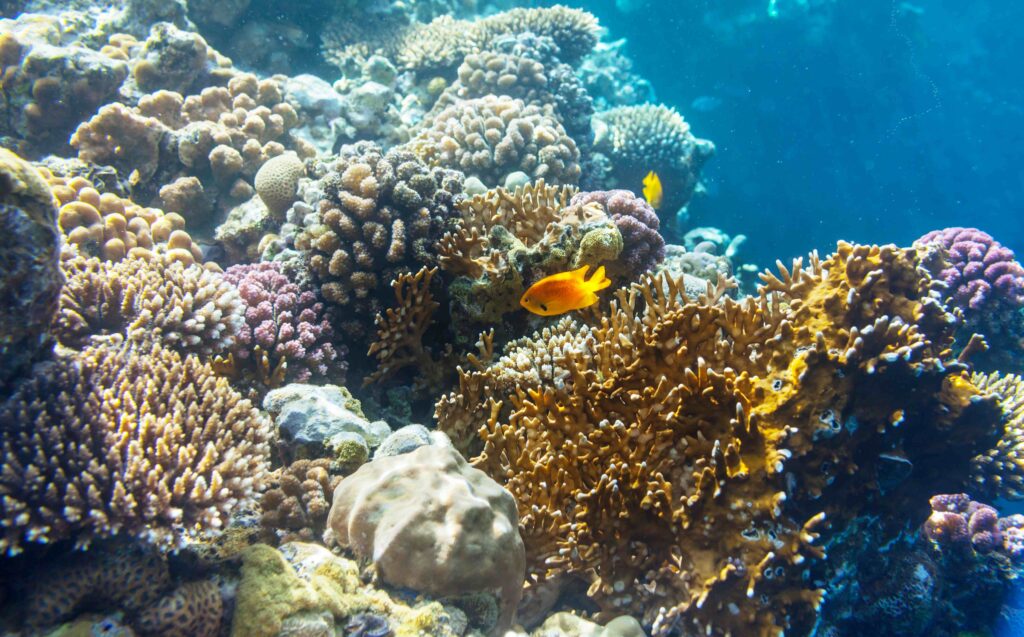
This restoration site is famous for the huge coral formations under the water which are absolutely loaded with reef fish and even other larger forms of marine life.
We’ve seen manta rays, mola-mola (the giant sunfish) and many more types of fish here. We’re told that you may even see a hammerhead shark, though we have yet to be so lucky.
If you prefer smaller fish, then the nudibranchs here are absolutely gorgeous and of nearly every form and hue!
There are also some cool porcelain crabs running around the reef which are really nice to see too.
Where Is It? Kampung Toyapakeh, Nusa Penida, Klungkung Regency, Bali 80771, Indonesia
Does Bali Have Coral Reefs?
Yes! Bali has many coral reefs both around the mainland and offshore around the Nusa islands, (including Nusa Lembongan, Nusa Ceningan and Nusa Penida island).
If you love to dive you can see hard and soft corals, reef fish and some incredible coral restoration projects in action around Bali.
Can You Bring Coral Back From Bali?
You can find coral fragments in the sand on the beaches all over mainland Bali and you’re not doing any harm by picking them up.
However, if you’re returning to Australia, you should know that there are strict rules about what you can bring into Australia and it’s illegal to bring coral fragments without a permit. So, it’s best to leave the bits you find on the island.
What Is The Coral Triangle In Bali?
It’s not just in Bali, the coral triangle is a large area of ocean that includes Bali and is home to a huge number of reefs.
How Has The Coral Reef In Bali Been Damaged?
Reefs have been damaged by over-tourism, climate change, pollution, overfishing and coral harvesting. It’s thought that many reefs have been depleted by as much as 50% of their coral.
Thus, coral restoration projects are rapidly becoming an essential part of ensuring the future of reefs throughout the Coral Triangle.
Every reef in Bali is an asset, not just to divers, but to each small fishing village around the island too.
Local villagers and communities often depend on the sea for their protein and without the reefs, the ocean would lose its turtles, many of its fish and much more.
Responsible tourism around the reefs on the island can help to bring in the funds so badly needed to restore the reefs to their glory and for divers in future generations to enjoy.

